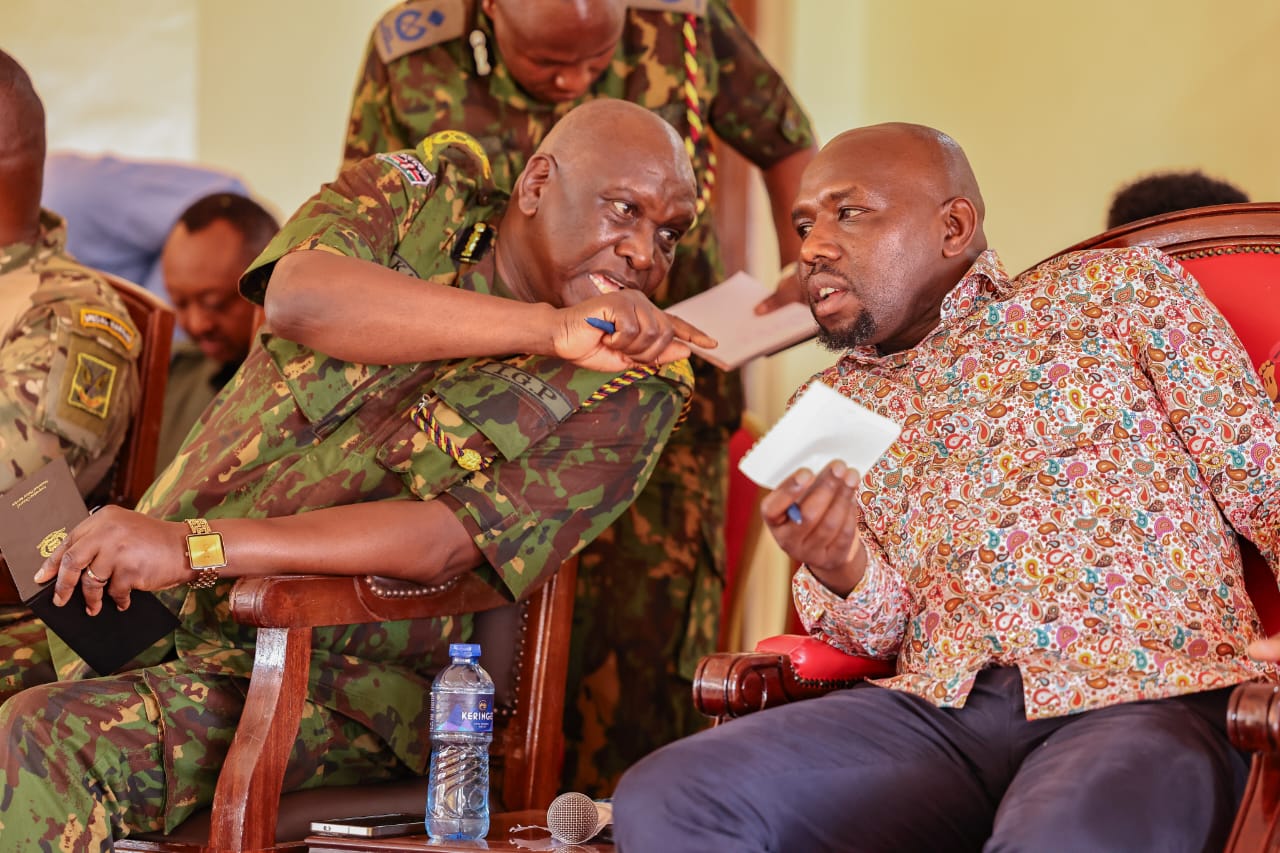

Interior and National Administration
Cabinet Secretary Kipchumba Murkomen has reiterated his commitment to
supporting police officers in addressing operational challenges, particularly
the persistent fuel shortages that have hampered service delivery.
Speaking during the 44th Jukwaa
la Usalama town hall meeting in Mandera town on Monday, Murkomen pushed
back against critics who have accused him of shielding corruption within the
police service, insisting that raising the welfare concerns of officers should
not be misconstrued.
“I will continue to voice the
challenges the police are going through, even as I continue to call on them to
shun corruption,” the CS said, adding that police officers deserve fair
treatment as they discharge their duties.
He noted that the purpose of Jukwaa
la Usalama, which has been held in multiple counties, is to create a
platform for officers and residents to speak openly about security-related
issues so that solutions can be developed in consultation with national and
county governments.
“Our police officers have a right to
speak about their challenges. Let’s stop mocking them. Not every challenge is
corruption,” he stressed.
Murkomen revealed that following
discussions with Mandera Governor Mohamed Khalif and county leaders, water
shortages in security camps would soon be addressed through a joint effort
between the national and county governments.
The CS praised the calm environment
in Mandera, noting that the county’s economy, which relies heavily on livestock
production and cross-border trade with Somalia and Ethiopia, has benefited from
improved security.
He commended the multi-agency
security team for containing cross-border threats that have historically
undermined stability in the region.
“Mandera County is calm, and people
are going about their daily activities as usual. The security team has done a
commendable job to contain threats, but there is no room for complacency,” he
said.
Murkomen further disclosed that the
government had started issuing firearms to chiefs and assistant chiefs facing
threats, while also promising to recruit, equip, and incentivize more National
Police Reservists (NPRs) to strengthen security in the county.
On inter-clan conflicts over grazing
and watering points, the CS acknowledged that flare-ups continue to occur but
credited National Government Administration Officers (NGAOs) and local leaders
for working together to contain disputes.
To improve police operations,
Murkomen announced that mobility would be prioritized once the government finalises
its motor vehicle leasing programme.
He also highlighted ongoing
modernization efforts aimed at equipping officers with advanced technology to
enhance service delivery.
The meeting in Mandera was attended
by Governor Khalif, MPs Hussein Weytan (Mandera East), Maj. Rtd. Bashir
Abdullahi (Mandera North), Mohamed Abdikheir (Lafey), Abdul Haro (Mandera
South), MCAs, and community representatives.
Murkomen was accompanied by top
security chiefs, including Inspector General of Police Douglas Kanja, Deputy
Inspector General of APS Gilbert Masengeli, DCI Director Mohamed Amin, GSU
Commandant Ranson Lolmodooni, and senior officers from the Ministry of
Interior.
The Jukwaa la Usalama
initiative, launched by the Interior Ministry, aims to create dialogue between
security agencies and citizens across the country to strengthen trust, improve
welfare, and find collaborative solutions to security challenges.













